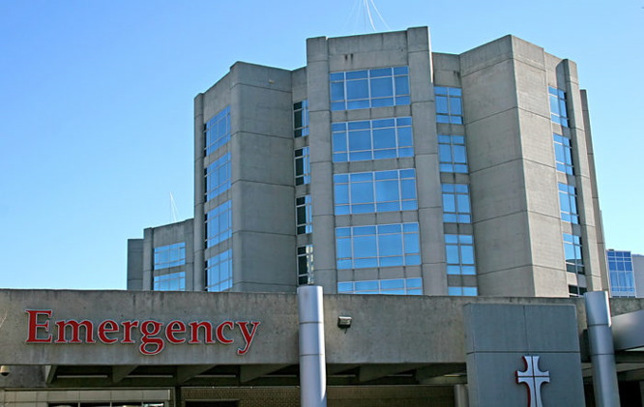For the first time in a few years, Penn State Health is adding another hospital system. The Hershey, Pennsylvania-based not-for-profit signed a definitive agreement to acquire Holy Spirit Health System from Geisinger Health System, another large not-for-profit system based in Danville, Pennsylvania.
Geisinger acquired Holy Spirit Health in October 2014. Holy Spirit is anchored by Holy Spirit Hospital (277 beds), a Level II Trauma Center located in Camp Hill, Pennsylvania, southwest of Harrisburg. The deal includes the hospital, its outpatient practices and urgent care centers in Cumberland, Dauphin, Perry and York counties, as well as the Ortenzio Heart Center and the assets of West Shore EMS.
Once the deal is complete, the hospital will be renamed Penn State Health Holy Spirit Medical Center. The deal is expected to close in October 2020.
Penn State Health includes Penn State Health St. Joseph Medical Center in Reading; Penn State Health Milton S. Hershey Medical Center, Penn State Children’s Hospital, Penn State Cancer Institute, and Penn State Health Rehabilitation Hospital (jointly owned with Select Medical), based in Hershey, as well as more than 1,300 physicians and direct care providers at 78 medical office locations. The system also has jointly owned health care providers, including Hershey Outpatient Surgery Center, Hershey Endoscopy Center, Horizon Home Healthcare, and the Pennsylvania Psychiatric Institute.
Penn State Health shares an integrated strategic plan and operations with Penn State College of Medicine, the University’s medical school.
It’s been a while since Penn State Health extended its geographic footprint in the state. In 2014 it acquired the St. Joseph Regional Health Network from Catholic Health Initiatives. The deal included St. Joseph Medical Center (180 beds) and 15 ambulatory outpatient centers.
Since then, large health systems began moving into central Pennsylvania. Back in 2016, the Federal Trade Commission successfully challenged Penn State Health’s signed merger with nearby PinnacleHealth, and Pittsburgh-based UPMC swept in to merge with PinnacleHealth soon after the deal was scrapped.
That merger put UPMC into direct competition with the University of Pennsylvania Health System (Penn Medicine), then the largest health system in southeastern Pennsylvania, with five hospitals, 10 multispecialty centers, and additional services in the area.
In 2017, Highmark Health, the Pittsburgh-based rival of UPMC, became a minority partner in Penn State Health. Billed as a strategic partnership, Highmark Health was allowed to seat up to three members on Penn State Health’s 15-member board of directors.

